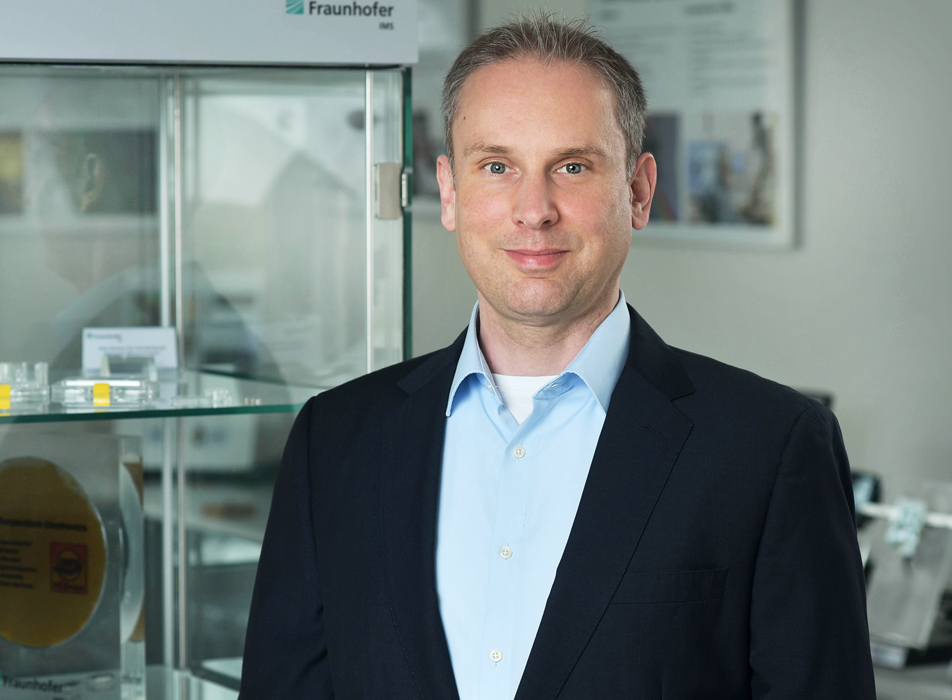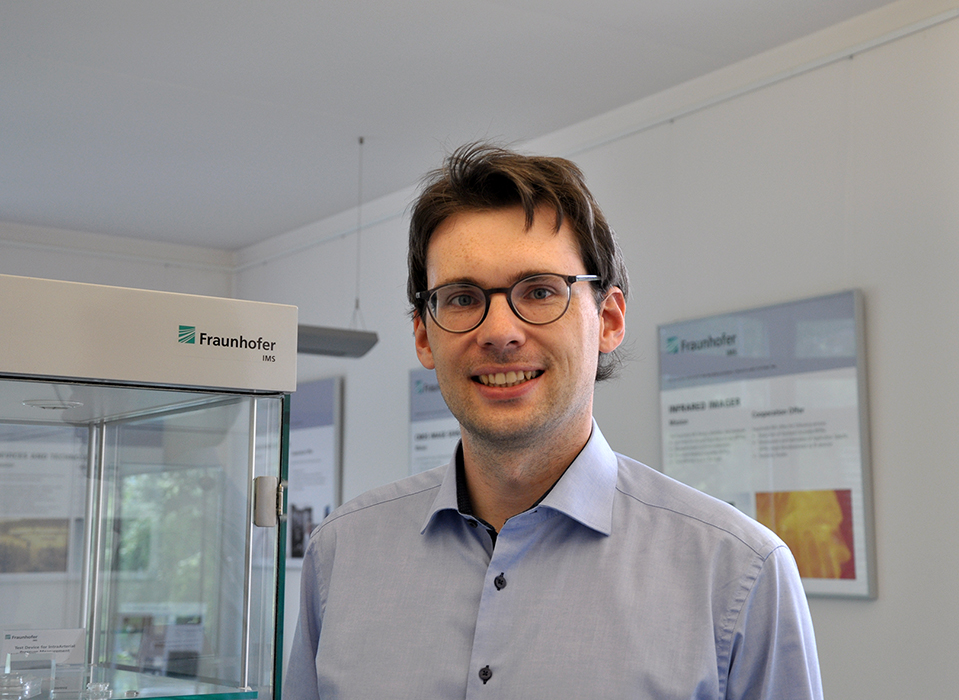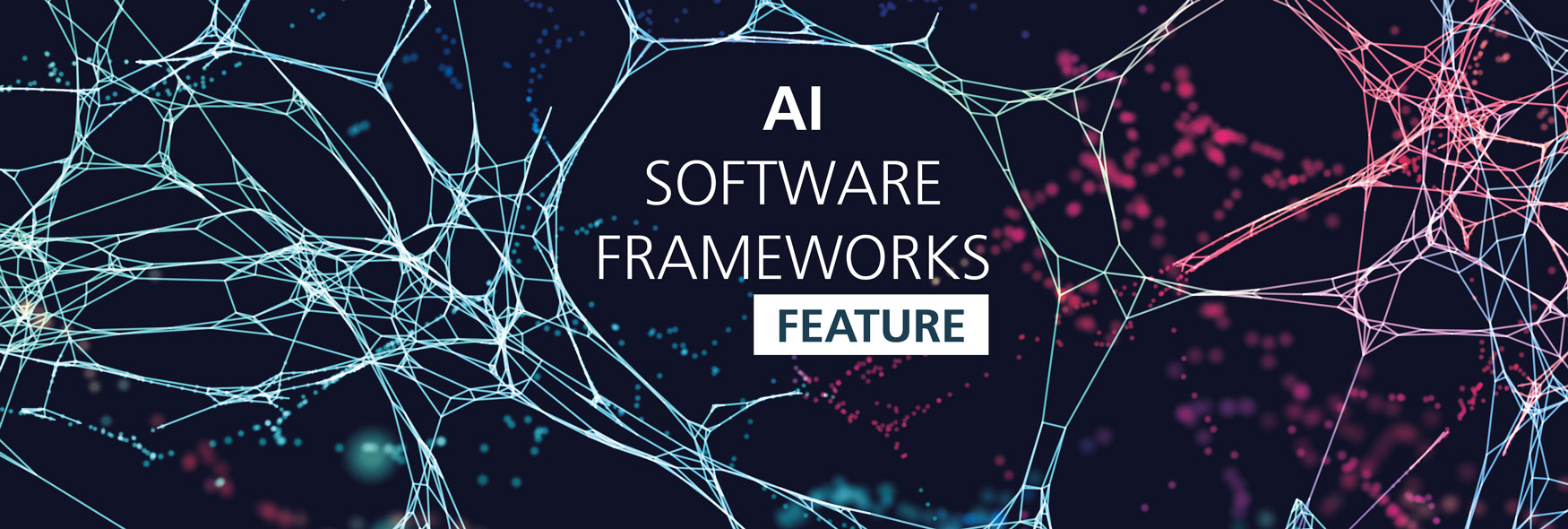Feature
At Fraunhofer IMS Burkhard Heidemann, Head of Embedded Software and AI, and Christian Wiede, Head of Embedded AI, are researching on intelligent AI solutions for various areas of life with their team. From industry to medicine applications in the fields of »Machine Learning« and »Computer Vision« promote innovation, sustainability and security in our society. »We create user-friendly and resource-efficient AI algorithms for small systems with maximum data security that run on any hardware. Through our extensive know-how in sensor technology and artificial neural networks, we are able to reduce performance overhead on a large scale,« says Burkhard Heidemann.


»For this purpose, we have developed AIfES® (AI for Embedded Systems), a software framework that is open source and works on any hardware. Thus, our in-house framework supports a very wide range of applications from our research that can be used in medicine, industry or even in space,« adds Christian Wiede. In the following, we will introduce you to some of these applications.
Not just checking your weight on the scale in the morning, but also monitoring blood pressure and atrial fibrillation with miniaturized devices such as smartwatches and patches
For self-monitoring of hypertensive patients, two health parameters are relevant: blood pressure and body weight. Blood pressure has to be determined in a complex way using cuffs, while body weight can be recorded quite easily using a simple body scale. »If it is possible to integrate blood pressure measurement into personal scales, patients and manufacturing companies alike will benefit from easier and more convenient use with a lower overall price,« explains Burkhard Heidemann. For this purpose, the signals are to be derived via the sole of the foot using sensors in the project LIBRA[1]. Morphological characteristics will be extracted from the course and the blood pressure determined with the help of neural networks. AIfES® as integrated AI is implemented in an energy-efficient way on an embedded system. This is achieved through a constant expansion of knowledge and the exchange of data between different trained scales. In addition, only a small part of the data is to be calculated in the cloud, so that data traffic is reduced.
Early intervention through AI-based diagnostics: a miniaturized AI-based electrocardiogram (ECG) patch for more efficient, digital healthcare sounds ambitious at first, but with ARTEMIS[2] it could soon be part of everyday life. With almost two million people affected, atrial fibrillation is one of the most widespread diseases in Germany and can have serious consequences, such as a stroke, if not treated early. »To preventively counteract this we have developed ARTEMIS, a hardware-based AI integration as part of an integrated circuit that can recognize atrial fibrillation in ECG data in real time in a decentralized manner on the patient,« says Heidemann. The system thereby features extremely reduced power consumption to allow it to be used in portable and highly miniaturized medical devices, such as wearables or patches. »Pre-analysis enabled in hardware and software using AI communicates critical changes in ECG data directly, quickly and safely to medical staff in the telemedicine center (TMZ), allowing them to respond early to a potentially life-threatening situation,« says Christian Wiede. But protecting human integrity doesn't just start in medicine, as the applications below will show. By the way, such patches can also be used in space travel to support astronauts and monitor their health exposure, or even in monitoring our food.
Condition monitoring using AI for electrical power grids as well as the food and production industry: saving energy, detecting contaminated food and using testing machines wisely
Already at work and in food production, our lives can be made safer, healthier and more sustainable with AI. In this way, the Fit4eChange[3] project creates an easily retrofittable power sensor that can be installed without interrupting the power line and operates maintenance-free through »Energy Harvesting«. The sensor collects time-resolved data for current and voltage, providing computational capabilities on the wireless device to process the raw data while delivering data to the control center, which responds accordingly. This allows renewable energy generation and feed-in to be displayed against electricity consumption.
The ISEP[4] project is developing an innovative, compact system for sound-based process monitoring. Filling systems, conveyors and dosing systems from the food industry are used as examples for the systems to be monitored, where food contamination can be detected. For this purpose, a sound sensor is being developed that can be flexibly and autonomously integrated into existing production processes. The solution being developed is based on machine learning methods that perform feature extraction, which is then evaluated by an artificial neural network (ANN) to be developed.
A universal sensor platform for the integration of non-invasive sensors is being developed in the KI-Sense[5] project. With the help of this platform, existing, non-networkable production and testing processes are to be connected to Industry 4.0. Decentralized, device-internal data processing and training of AI models in the sensor system allow monitoring techniques to be adapted to machine states and processes in real time.
Christian Wiede envisions a wide range of future opportunities for AI software frameworks to support a variety of processes: »The projects mentioned are just a few of the solutions we are configuring with the help of our AI software framework AIfES®. We are also still working on the extraction of vital parameters via contactless optical sensors. These can be used in medicine, but may also play a role in the future, for example, in driving.« Burkhard Heidemann also identifies the potential of further development in the field of AI: »Due to the versatility of our applications, entirely new products and business models can be created with the help of AI. We see on a daily basis that we, as scientific employees, develop new possibilities together with students, SMEs, start-ups or other Fraunhofer institutes and identify opportunities in all socially relevant fields.«
[1] Funded within the scope of the Fraunhofer-Gesellschaft's Internal Programs, grant number SME 610 550.
[2] The project is funded under grant number 13GW0579D by the German Federal Ministry of Education and Research.
[3] This project is funded under grant number EFO0021A by the Ministry of Economics, Industry, Climate Protection and Energy of the State of North Rhine-Westphalia.
[4] This project is funded under funding code 16KN085620 by the German Federal Ministry of Economics and Climate Protection (BMWK) based on a resolution of the German Bundestag.
[5] This project is funded under funding code 16KN081725 by the Central Innovation Program for SMEs (ZIM) of the German Federal Ministry of Economics and Climate Protection (BMWK) on the basis of a resolution of the German Bundestag.
